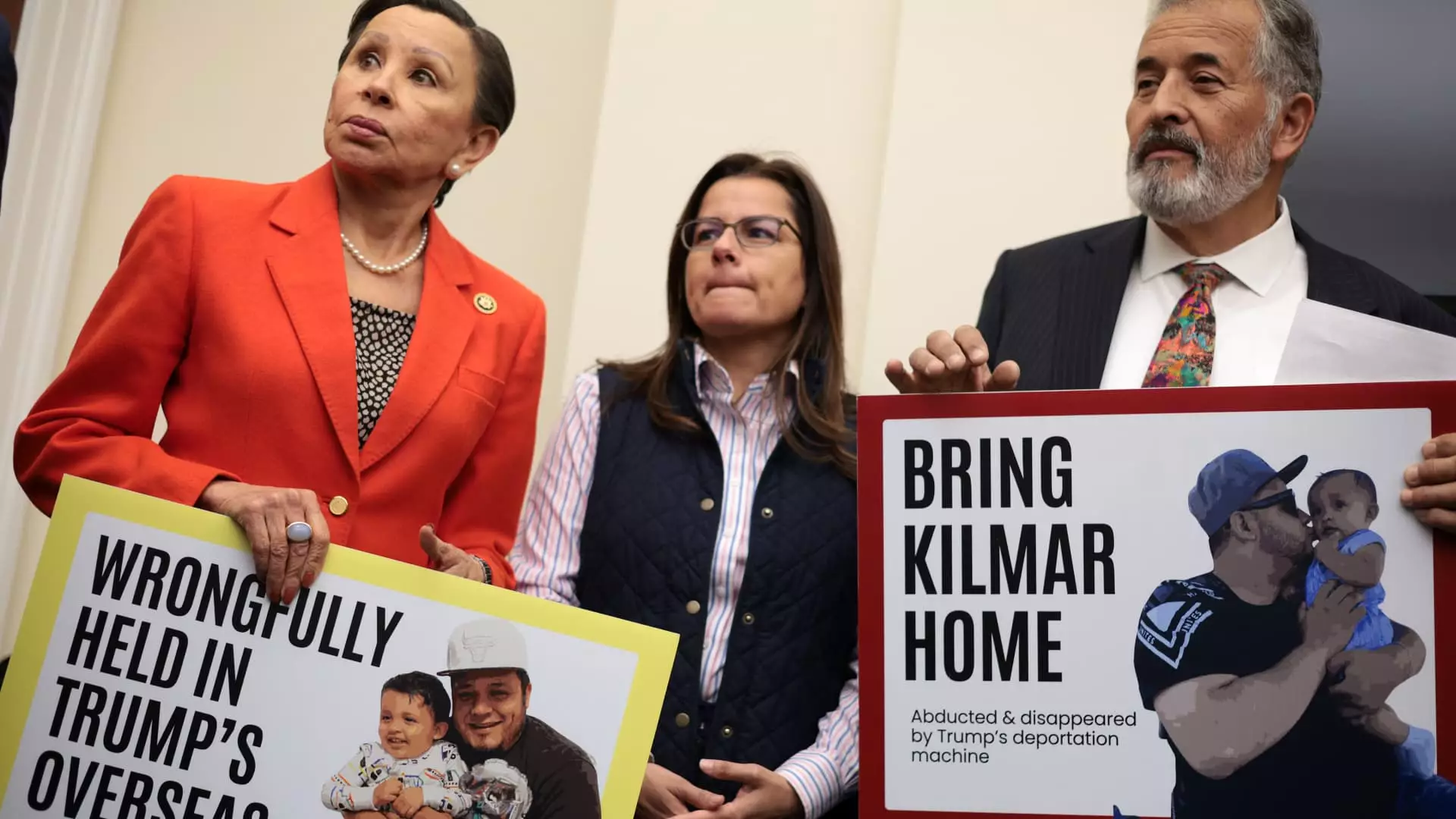The recent ruling by U.S. District Judge Paula Xinis sheds light on a glaring issue within the American political landscape, wherein the executive branch’s blatant disregard for judicial authority raises questions about the very foundation of democracy. The case of Kilmar Abrego Garcia, a man wrongfully deported to El Salvador despite protections against his removal, has become emblematic of an administration seemingly emboldened by its own power to flout court orders. Judge Xinis’s insistence on obtaining document testimonies underscores the urgency of holding the Trump administration accountable for its alleged defiance.
In a powerful display of judicial independence, Xinis refused to hastily label the administration in contempt of court; however, she expressed her dismay at its apparent inaction. This moment encapsulates a broader narrative of tension between the judiciary and a White House that often seems to prioritize political strategy over legal obligations. By emphasizing that “there will be no tolerance for gamesmanship or grandstanding,” Xinis positions herself as a guardian of the rule of law, demanding clarity and compliance instead of political maneuvering.
The Immigration Quagmire
Abrego Garcia’s case has taken on a life of its own within the larger immigration debate that has polarized Americans over the last decade. Deported to El Salvador’s infamous Terrorism Confinement Center, he represents not just one individual’s plight but a myriad of injustices stemming from a policy framework that appears more punitive than protective. Under a regime that champions strict immigration enforcement, the very concept of justice seems to falter, revealing deep-rooted flaws in the system designed to safeguard human rights.
Adding to the complexity, a multitude of legal battles and executive actions have raised alarms among civil rights advocates, as well as legal scholars. The Trump administration’s application of the Alien Enemies Act—dating back to 1798—exemplifies a desperation to find legal justifications for policies that many argue violate fundamental human decency. The fact that judges are now frequently stepping in to block such policies speaks volumes about the judiciary’s essential role as a check on executive authority.
A Climate of Hostility Towards Institutions
The ongoing conflict between the Trump administration and the judiciary reveals a disturbing trend: the executive branch seems increasingly willing to challenge the foundational principles of American governance. By targeting educational institutions and law firms that dare to question its actions—exemplified through threats of stripping tax exemptions and limiting legal practices—the administration appears to be stoking a culture of fear that undermines institutional integrity. Such tactics not only jeopardize the independence of universities and legal entities but also erode public trust in government at large.
Trump’s actions following Harvard’s refusal to comply with his demands for political conformity are indicative of a broader campaign against dissenting voices. In this climate, the risk of chilling effects on academic freedom and legal advocacy looms large, signaling that opposing the administration may incur significant repercussions. Regulatory overreach and intimidation tactics cannot be dismissed as mere political rhetoric; they signify a concerted effort to consolidate power and silence opposition.
A Call for Accountability and Reform
In the face of this chaotic backdrop, the public must demand accountability from elected officials who seem intent on undermining the checks and balances that protect democracy. Abrego Garcia’s wrongful deportation is not just an isolated incident; it is a symptom of an administration that seeks to redefine governance by its own terms. As Judge Xinis strives to uphold the law, it becomes imperative for citizens to unite in the fight for justice and reform.
Moreover, the testimony secured through Judge Xinis’s orders could serve as a watershed moment, revealing information that may compel a reassessment of national immigration policies. If the government’s interpretations of judicial orders are pushed back against, we may witness a pivotal shift toward restoring judicial oversight and adhering to fundamental human rights. This case could ignite the necessary discussions on how immigration laws can be enforced without compromising human dignity.
As individuals like Jennifer Vasquez Sura—Abrego Garcia’s wife—plead for their loved ones caught in the crosshairs of political gamesmanship, it’s crucial for ordinary citizens and lawmakers alike to take a stand. The struggle for justice is an ongoing battle; it requires vigilance and a commitment to preserving the values that underpin our democracy. It is time to cast aside partisan interests and engage in a collective responsibility toward defending human rights and maintaining the integrity of our institutions.


Leave a Reply